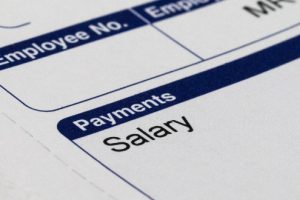Many will take the view that this is the right thing to do in order to be socially responsible and play their part in stopping the spread of Covid-19. This, however, comes with a range of other risks, not least that there is a long list of exemptions to the rules, the reasonable excuses that customers may have for not wearing a face covering.
The list of reasonable excuses which exempts customers from wearing a face-covering is far from straightforward to interpret and enforce. It includes reasons of physical and mental illness, impairment, disability, and where wearing a face covering would cause severe distress. These are all examples that would make customers exempt. Many of these reasons are likely to be invisible and would therefore require questions to be asked of the person who is not wearing a face-covering – effectively a challenge to be made. That is before you even get to the potential for customers being untruthful.
Whilst staff may be trained to assess the age of customers for age-restricted products, this does not apply to the whole sector, and evaluating if and when to enforce the wearing of a face-covering presents a new, and much more complex, challenge. Even if dealt with sensitively, this can still result in distress to those being questioned, potential discrimination issues, and in the worst cases, escalate into a violent situation, particularly if entry is refused.
There is also the potential for multiple challenges if someone is spotted without a face covering while inside the store. Grocers have experimented with given specific lanyards or other similar measures, but even that has been fiercely resisted by those who consider that they are having their disability or issue highlighted. Subsequently, it is a very tricky area.
As a result, real care needs to be applied to policies in this space. Not least that this is a growing area of litigation and claims are being brought by customers who have been challenged. Regardless of actual claims, there is also a definite trend towards these challenges being recorded and then posted on social media. These recordings truly highlight how quickly and easily these situations can escalate, and how difficult finding the right path here really is.
Some may ask, why don’t retailers deal with this like they’d deal with any other conflict in store – by alerting a security guard or by dealing it with it calmly and thoughtfully? The reality is this will often lead to further conflict. The British Retail Consortium’s most recent Retail Crime Survey reports that there are 400 incidents of retail violence every day in the UK, and as a result of Covid-19 and the ongoing issues related to the enforcement of face coverings, these incidents continue to rise. Retailers are encountering large numbers of customers who have complained vociferously about the new facemask enforcement position adopted by them. As such, the challenges faced by retail staff must not be understated.
Retailers need to consider how to manage this situation carefully, as it has every potential to spiral out of control, and have a counterproductive impact.
Dominic Watkins is global lead for retail, food and hospitality at global legal business DWF
 Talking Retail Grocery and product news for independent retailers
Talking Retail Grocery and product news for independent retailers






